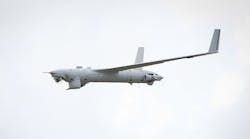The indecision and obstacles involved with carrying out the war on terrorism — at home and abroad — are largely gone now that results are in from the November elections.
As the campaigns wound down in late October, it became increasingly obvious that the recent elections were a referendum on national security — specifically on how the United States should confront terrorist threats internationally and within our nation itself. The Republicans, for their strengths as well as their shortcomings, demonstrated themselves to be the party of action in this regard, and they won by wider margins than may of the experts had predicted.
Beginning in January, control of the U.S. Senate goes to the Republican Party, and the Republicans' hold on the U.S. House of Representatives gains strength. Yet even though Democrats retain control of the Senate until then, it didn't take long for things to happen after Republican candidates prevailed in their Senate and House races.
The status of the proposed U.S. Department of Homeland Security, for example, had been stuck in the Democrat-controlled Senate, like a fly on flypaper, for the better part of a year since the Sept. 11 terrorist attacks in New York and Washington. Yet just two weeks to the day after the election, Congress approved a bill to create the new cabinet-level Department of Homeland Security, and sent it to the desk of President Bush for his signature. The House had previously approved its own bill to create the department.
This quick and decisive action to authorize creation of a federal department with broad powers to safeguard U.S. citizens and their interests is, without a doubt, an indication of things to come. For the first time in decades, we have a consensus government, and a clear mandate to quit talking and start acting in matters involving the lives of average Americans and their vulnerabilities to foreign and domestic terrorism. Next month when the Republicans take official control of the U.S. Senate, I think we'll see even more measures to affirm and defend the safety of Americans and their allies throughout the world.
The next agenda item involves Iraq, and the dire need to scour that country of every last vestige of any weapon that could aid and abet the belligerence of dictator Saddam Hussein and his support for worldwide terrorism. This involves more than weapons of mass destruction, which chemical and biological agents are not. While nuclear weapons obviously are weapons of mass destruction, the chem/bio threat technically involves weapons of area denial, but they also clearly are weapons of terror, and as such must be taken away from the leadership of Iraq before they use them against Americans or their interests, or give them to terrorists who will. Sovereign national rights extend to civilized countries that respect the basic human rights of their own citizens and of human beings throughout the world. Saddam Hussein's Iraq has shown itself to be neither.
Yet what kind of man Saddam Hussein is, isn't the point. The central issue that the November elections brings into clear focus is protecting Americans from an often-unseen, tenuously understood, yet very real threat of terrorism. The elections mean things are changing, and for the better. After U.S. and international forces — military and diplomatic — sanitize the contagion of Saddam Hussein and his ilk from Iraq, attention is likely to shift very heavily to defending the U.S. homeland.
This attention starts with the new Department of Homeland Security, yet extends throughout state and local governments, as well as throughout private industry and the private lives of individuals. The new Homeland Security Department, by itself, will involve Herculean effort, yet much more needs to be done at the other levels, as well.
Creating the new department encompasses broad changes that represent what experts are calling the largest federal bureaucratic reorganization in half a century. Not the least of these changes would shift to the new Department of Homeland Security:
- the Immigration and Naturalization Service from the Justice Department;
- the U.S. Customs Service from the Treasury Department;
- the U.S. Coast Guard from the Transportation Department;
- the Office of Nuclear Security and Incident Response from the Energy Department;
- the National Communications System from the Defense Department;
- the Transportation Security Administration from the Transportation Department; and
- the Federal Emergency Management Agency from its status as an independent entity.
In addition, federal activities in chemical, biological, radiological, and nuclear response assets are to be consolidated from several existing agencies, and the National Biowarfare Defense Analysis Center will be born.
Similar reorganizations are in the works at state and local levels. Private industry and semi-public institutions such as electric utilities and nuclear power plants also must devote time, effort, and money to shoring up defenses against terrorism, and identifying and strengthening weaknesses.
The Department of Defense (DOD) also should reap benefits from the elections. DOD leaders will shift American military capabilities to confront and defeat terrorism throughout the world, as well as keep traditional adversaries at bay. New systems, and upgrades to existing systems, that are particularly effective against the forces of terror are bound to receive priority treatment now in the halls of Congress, as well as in the Pentagon. With Republicans in control, weapon systems designers can spend more time doing their jobs, and less time watching their backs for opportunistic political attacks that inevitably come from the Democrat side of the aisle.
At the same time, however, Republican control of Congress will not signal an opening of the floodgates for just any new weapons proposal. On the contrary, weapons managers and builders can expect a new level of financial scrutiny from the new Republican congressional leadership to ensure that new systems and system upgrades stay within their budgets and meet clearly defined military goals in the war on terrorism.
The November elections are bound to make all of these efforts just a little easier than they would have been had Congress remained divided.
By John Keller, chief editor
Military & Aerospace Electronics


